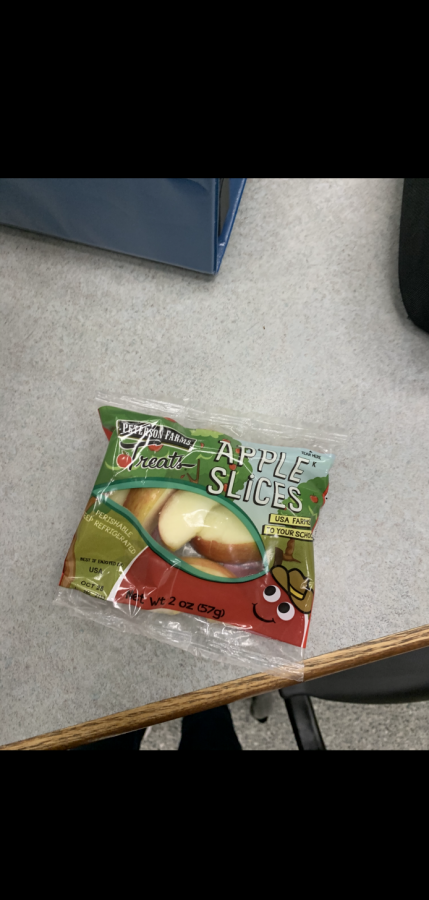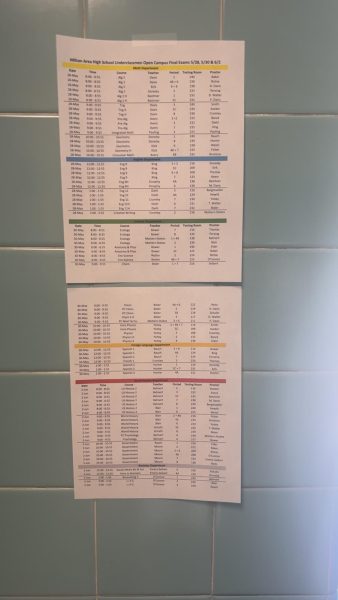Allergies bring new rules
Following an administrative team decision, homemade foods are no longer allowed in classrooms due to student food allergies, according to Milton’s Food Service Director Ms. Sharon Adami.
The food service department’s main goal concerning food allergies is to restrict and limit students’ exposure to their allergens, Ms. Adami said. There are several protocols to achieve this limitation, she said. For example, if anything containing peanut butter is prepared in the kitchen, all surfaces are sanitized before any additional food is prepared, she added.
According to Ms. Adami, this rule is a new addition to the district’s food service guidelines, but changes are made and regulations are updated every year.
The rule is stated in the High School Food Service Back to School Packet: “Only pre-packaged food items with complete ingredient lists will be allowed in our classrooms at Milton Area School District…The classroom teacher must be able to identify all ingredients in the sealed food item[;] otherwise it will be returned home.”
According to Spanish teacher Ms. Angela Hunter, foods tied directly to the curriculum
will be allowed as long as allergies are avoided and recipes are provided.
Ms. Adami said the allergy concern began at the elementary level. The district has a growing population of students with food allergies, and younger students don’t always know how to manage their allergies, she said. Last year, a Baugher Elementary student had a severe peanut allergy, she explained. She added the concern for the student eventually prompted the changes to this year’s rules.
Ms. Adami said the Food Service Department made several changes to “limit exposure for that particular student,” and those changes are still used to limit exposure for any student with a food allergy. At the elementary level, breakfast is sent to the classrooms, she said. Peanut butter is no longer sent to any classrooms, she said, adding that it is still served in the cafeteria, but it is handled and packaged with caution.
According to Ms. Adami, approximately 16 percent of current Milton High School students have food allergies. This includes reactions to milk/lactose, which can be classified as an intolerance but included with allergies, she said. As a substitute, the school provides lactaid milk, she added.
If a student has an allergic reaction, the district protocol is to call the nurse, Ms. Adami said. The Food Service Department tries to prevent allergic reactions as much as possible, she said.
“We take a lot of precautions on knowing which kids have allergies,” she said.
School Nurse Ms. Lois Buck said for severe reactions, staff should alert the nurse with information such as the student’s name, reason for reaction and location. She added that the district has various plans of action depending on the severity of the reaction. “It can be as simple as removing the allergen from the building to medications for a minor reaction to [the use of] Epi-Pens. Plans can be provided for students to staff regarding the allergen, possible reaction, and response to provide assistance to the student,” she said.
Ms. Buck said students are allowed to carry Epi-Pens with them as long as they have a “documented physician order.” She added Epi-Pens are very fast acting and should be administered as soon as possible following the onset of a reaction.
In addition to kitchen protocols to avoid cross-contamination, students’ food allergies are filed in the cafeteria computer systems and come up when they enter their lunch number to get food, Ms. Adami added. “That’s the final check,” she said.




